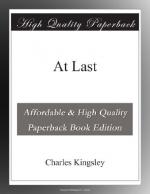Our bonnie widow had her foibles and vanities, but the first were amiable, the latter superficial and harmless, usually rather pleasant than objectionable. She was very proud, for instance, of her success in the profession she had taken up, and which she pursued con amore; very jealous for the reputation for connubial felicity of those she had aided to couple in the leash matrimonial, and more uncharitable toward malicious meddlers or thoughtless triflers with the course of true love; more implacable to match-breakers than to the most atrocious phases of schism, heresy, and sedition in church or state, against which she had, from her childhood, been taught to pray. The remotest allusion to a divorce case threw her into a cold perspiration, and apologies for such legal severance of the hallowed bond were commented upon as rank and noxious blasphemy, to which no Christian or virtuous woman should lend her ear for an instant. If she had ever entertained “opinions” hinting at the allegorical nature of the Mosaic account of the Fall, her theory would unquestionably have been that Satan’s insidious whisper to the First Mother prated of the beauties of feminine individuality, and enlarged upon the feasibility of an elopement from Adam and a separate maintenance upon the knowledge-giving, forbidden fruit. Upon second marriages—supposing the otherwise indissoluble tie to have been cut by Death—she was a trifle less severe, but it was generally understood that she had grave doubts as to their propriety—unless in exceptional cases.
“When there is a family of motherless children, and the father is himself young, it seems hard to require him to live alone for the rest of his life,” she would allow candidly. “Not that I pretend to say that a connection formed through prudential motives is a real marriage in the sight of Heaven. Only that there is no human law against it. And the odds are as eight to ten that an efficient hired housekeeper would render his home more comfortable, and his children happier than would a stepmother. As for a woman marrying twice”—her gentle tone and eyes growing sternly decisive—“it is difficult for one to tolerate the idea. That is, if she really loved her first husband. If not, she may plead this as some excuse for making the venture—poor thing! But whether, even then, she has the moral right to lessen some good girl’s chances of getting a husband by taking two for herself, has ever been and must remain a mooted question in my mind.”
Her conduct in this respect was thoroughly consistent with her avowed principles. She was but thirty when her husdand died, after living happily with her for ten years. Her only child had preceded him to the grave four years before, and the attractive relict of Frederic Sutton, comfortably jointured and without incumbrance of near relatives, would have become a toast with gay bachelors and enterprising widowers, but for the quiet propriety of her demeanor, and the steadiness with which she insisted—for the most part, tacitly—upon her right to be considered a married woman still.




